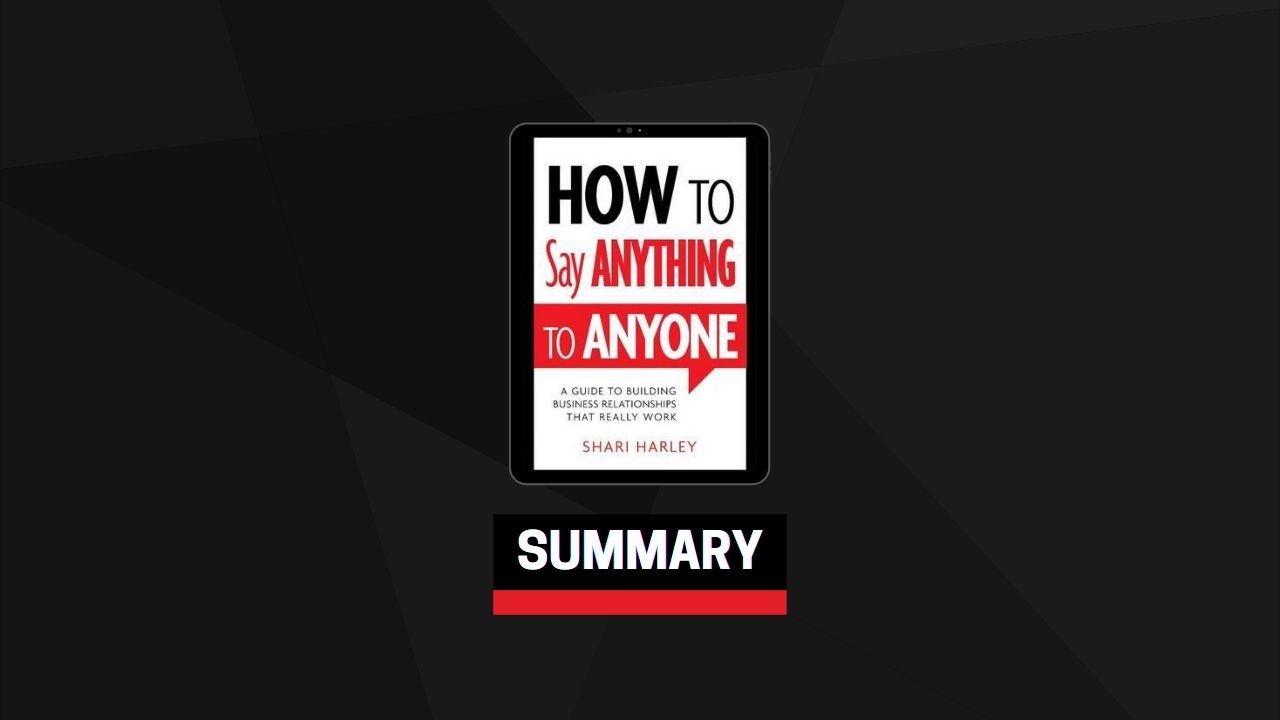How To Establish Candid Relationships
GIVE PEOPLE PERMISSION TO TELL YOU THE TRUTH.
Despite the abundance of training programs on giving and receiving feedback, speaking up in organizations remains difficult, and many people don’t do it. We tend to think it’s too difficult to confront people. We don’t want to deal with the conflict, so we say nothing.
Be smarter. Rather than waiting for something to go wrong, set clear expectations at the beginning of working relationships and projects. Tell your coworkers you want to have a good relationship with them. Make an agreement that when challenges arise, it’s not only okay but also expected to discuss what’s going on. Agreeing to talk about difficult situations before they happen makes it more likely that when breakdowns occur, you’ll be able to speak up with less anxiety.
You Get What You Ask For
PLAN FOR BREAKDOWNS BEFORE THEY HAPPEN.
Set expectations with your internal and external clients at the onset of your working relationships. Rather than expecting everything in your office to go well, assume that breakdowns will happen and plan for them.
Agree on how you’ll handle challenges when they arise. Talk about how to avoid difficulties and how to make it more likely that your work together will go smoothly. Ask permission to give feedback. Asking for what you want up front makes missteps and upsets less likely and makes it easier to talk about challenges when they happen.
Taking The Mystery Out Of Working With Others
ASK ABOUT OTHERS’ WORKING-STYLE PREFERENCES; DON’T ASSUME.
When we know how people like to work, we’re less likely to violate their expectations and damage relationships. The more you know about people at the beginning of a working relationship, the fewer difficult conversations you will need to have. Consider asking about working-style preferences as a form of conflict prevention.
Creating relationships in which you can say whatever is on your mind without feeling nauseous doesn’t happen overnight. It’s an iterative process. You tell others you want a good relationship with them, ask permission to give and receive feedback, and then overtly ask about working-style preferences. You’re paving the way to powerful working relationships, one step at a time.
How To Create Candid Managerial Relationships
THE BETTER YOU KNOW YOUR EMPLOYEES, THE EASIER THEY ARE TO MANAGE.
The ultimate purpose of all these questions is to eliminate the guessing that’s inherent in managing people. Learning more about your employees from the onset of your working relationship allows you to give them opportunities that motivate long-term performance. You’re creating an open relationship in which employees can make requests and be honest without fear of recourse.
If you ask the questions consistently, you’ll never again be surprised by an employee who becomes frustrated or disengaged or who resigns. Instead, you’ll have more power and control in all your managerial relationships.
Managing Up With Candor
ASK WHAT YOUR MANAGER EXPECTS; DON’T WAIT TO BE TOLD.
You are responsible for your career—no one else is. During your career you’ll have managers who set expectations and give feedback, and you’ll have those who don’t. If you haven’t had a bad manager yet, just wait. He or she is coming.
Your job satisfaction and performance can’t be dependent on the person you work for. Don’t wait to be told what’s important to your boss or how to approach new relationships. Likewise, don’t assume that you’re doing a good job just because no one has told you otherwise.
Don’t let work happen to you. Take control. Doing so demonstrates that you’re committed to doing a great job, and it gets your relationship with your new manager off to a powerful start.
Strengthening Internal Business Relationships
TREAT EVERYONE YOU WORK WITH AS A CUSTOMER.
Much of the strife, redundant work, and lack of communication in organizations is predictable—and avoidable. Don’t assume the people you work with know what you do and why. Likewise, don’t assume you know your coworkers’ priorities. Make appointments with the people you work with most closely and ask what they’re working on this year. Ask how you and they can work together and make each other’s lives easier. Everyone appreciates being asked about their priorities and how you can work together. Asking these questions is an easy way to differentiate yourself and become someone others want to work with.
Relationships Require Maintenance
CHECK IN WITH YOUR INTERNAL CUSTOMERS EVERY QUARTER; ASK FOR FEEDBACK.
Kicking off relationships by telling people you want a good relationship and asking about working-style preferences is a great start, but it’s just the beginning. Relationships require maintenance. Check in with your coworkers quarterly and ask how their business has changed.
What are they working on now that they weren’t focused on when you last met? What else has changed? What’s gone well about the service you and your department have provided? How is your working relationship going? Assuming the status quo at work is a little like buying a new car, never changing the oil, and then being surprised when it dies when you hit 75,000 miles.
Instead, follow up. Ask for feedback, accept it graciously, and watch your business relationships and results improve.
Can I trust you?
IF YOU WANT YOUR BUSINESS RELATIONSHIPS TO WORK, BUILD MORE TRUST.
At the root of an organization’s success and profitability is the quality of its relationships. All the communication skills and techniques in the world won’t create smooth working relationships if people don’t trust each other. Start to notice when you’re gossiping. If you have something to say about someone, tell him directly or say nothing at all. When you realize you can’t keep a commitment, let people know as soon as possible. If you make a mistake, admit it. And share more information than you think you can. Employees can handle the truth. The more you trust people, the more they will trust you.
Tips For Giving Useful Feedback
IF YOU CARE ABOUT THE PEOPLE YOU WORK WITH, BE HONEST WITH THEM.
It’s easier to say nothing about frustrating behavior than to address it. But saying nothing will not improve the situation or your working relationship. Despite how they might respond, the people you work with really do want to know the things they do that both improve and damage their credibility. When you’re willing to tell people the truth, you do them a favor.
Find your courage and say what you need to say, in person, not via email or voicemail. Ask permission to give feedback and make sure it’s a good time for the recipient. Take the time to plan the conversation. Be specific and timely, and provide examples. Address one or two things at a time, not six or seven. Despite the resistance you might receive, you’ll earn your coworker’s loyalty and trust.
What They Say When You’re Not There
KNOW YOUR BLIND SPOTS.
Successful professionals who work well with others are aware of the impressions they create and how they affect people. The problem is that very few people will tell you about the mistakes you make at work. It’s easier to tell someone else. But this lack of information leaves you powerless to make changes and take action. Find the people in your life—personally or professionally—who will tell you the truth. Ask for feedback regularly from people you trust. Promise that no matter what people say, you will respond with “Thank you.”
Make it easy for others to tell you the truth. The easier it is to give you feedback, the more information you’ll get. The more information you have, the easier it is to manage your career, relationships, and results.
Dealing With Difficult Situations
YOU CAN SAY MORE THAN YOU THINK YOU CAN.
Working with other people will always be challenging. When you get a group of people together who need to accomplish goals with limited resources and time, it’s natural for conflict, power struggles, and territorialism to ensue. It’s just the nature of working in an organization.
I encourage you to speak up and make requests. You can say more than you think you can, especially when your intention is to strengthen a relationship and improve results. If you wait too long to address an issue or say things you wish you hadn’t, you can always clean it up.
Apologizing for how you managed something goes a long way and does not retract or invalidate your message. Suffering is optional. You’ll feel better when you say what you need to say.


